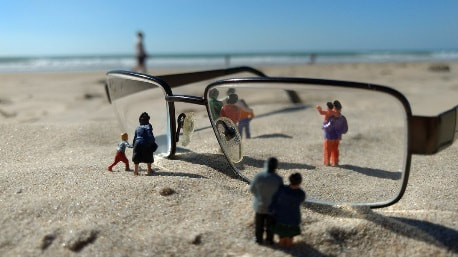 Dating doesn’t have to be so challenging for LDS singles. Once you have a good map of the landscape and know how to use it, your journey improves substantially. Many LDS singles who lack that understanding often prove to be their own worst obstacle. Too often they put the cart before the horse by insisting that potential dates meet their standards for marriage. This practice fosters a culture in which dating is viewed as synonymous with marriage. Dating then becomes warped in LDS singles life. That’s not the only way many LDS singles put the cart before the horse. When considering whether to date someone, they often look at potential candidates and assume they’ll always be just as they are right at that moment. If someone is found to be undesirable, it’s then easy to say, “I don’t want to spend eternity with that” and walk away. In so doing, LDS singles often walk away from the very blessings they seek. In considering dating opportunities, we should consider not just position but also direction. We need to see others as they may become. Direction is more than position 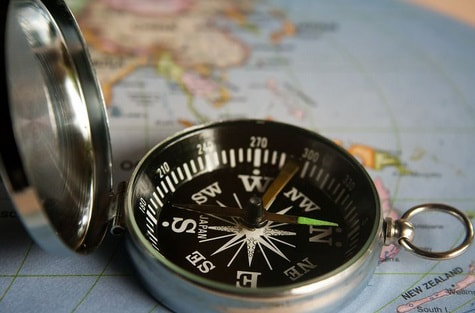 We came to this mortal existence to grow and become like our Heavenly Father. Traveling on this path towards perfection means that none of us are perfect as we are now. Yet our Heavenly Father doesn’t condemn us for not having yet completed our journey. He knows we’ll eventually arrive at our celestial destination if we maintain the proper direction. And He knows we can always change our direction. “Judge not, that ye be not judged” is the Savior’s teaching (Matthew 7:1). Yet how often do LDS singles fail to apply that teaching to their dating considerations? We confuse position and direction, thinking that person will always be just as we find them now. For example, most aren’t attracted to overweight suitors. Yet being overweight is merely position. What consideration do we give direction? There’s a world of difference between the overweight person trying to lose weight through diet and exercise and the overweight person doing nothing about it except crying over why no one wants to love them as they are. The Atonement by its very existence signals the potential for change. Truly believing in that potential means affording more weight towards direction than position when considering dating options. Potential to change is not change  According more weight to direction doesn’t mean ignoring position. For example, perpetrators of physical abuse can change, but that doesn’t mean you should trust them just because they can change. Potential for changing direction is not the same as actually changing direction. Our actions determine our direction. What we do every day determines whether we end in one destination or in another. And small changes today can result in large differences tomorrow. A truly reformed physical abuser will refrain from physical abuse. Repeat offenders are not reformed. They still have the potential to change, but their actions show they haven’t actually changed. Their direction is askew, and in the interest of personal safety, you’d be justified not dating such a character. On the other hand, a physical abuser who has refrained from physical abuse has a better direction. That person’s actions demonstrate a change in direction has taken place. Both always had the potential to change. But the difference here is one’s actions evidence a change in direction and the other’s don’t. Embrace multiple experiences  That’s why you should experience multiple casual dates with someone before deciding on the potential for a committed dating relationship with said person. For most aspects of an individual, you can’t judge appropriately with just one date. You need multiple experiences. Allowing that can help you give that greater weight to direction over position. Without that, it’s much easier to see only position and use that alone as the basis for dating considerations. No one’s perfect in this life. We’ll all miss the mark somewhere. But that doesn’t mean we always will. Our actions today can add to a body of evidence showing a more positive change in direction. And with time that body of evidence can demonstrate a more positive direction, which will make you more attractive to potential dating partners. Learning to see the potential in others can reveal doors of opportunity you didn’t before realize existed. Because no one’s perfect, the eternal companion you’re seeking isn’t perfect. Learning to value others for what they may become because of their direction may help you see that the person who you thought would never do as a companion actually fulfills your needs more than you could imagine. Tolerating imperfection can actually help you find your true love. And that will bring more joy in your journey.
0 Comments
 Like anything else in life involving other people with their own agency, you can do everything right and still come up short. In the world of LDS dating, coming up short means experiencing pain. Often this pain results from others’ choices, choices outside your direct control. I firmly believe life is what we make of it. I can’t preach the gospel of owning your life and believe otherwise. At the same time, I accept that some elements of my life are outside my control. There I control only my response. The natural man or woman inside each of us takes offense rather easily. We can quickly make the case for why we should be avenged for the wrongs we receive from other Latter-day Saints while dating. We’ve all been there and done that. I even have the shirt, the hat, and the jacket! But holding on to feelings of resentment and bitterness doesn’t improve your single situation nor make you any more attractive to the companion you’re seeking. Life isn’t always easy, but your journey can be easier when you drop the extra baggage. Insist on right  Forgiveness allows us to release the negativity that in effect separates us from God. That’s probably not our intention when we fail to forgive someone. We’re not consciously thinking our grudge will bring us closer to the Lord. Usually we’re thinking about our righteousness in demanding justice for the wrongs we suffer. Our wrongs may very well demand justice. But we don’t dispense that. “Vengeance is mine; I will repay, saith the Lord” (Romans 12:19). We may fool ourselves into thinking that our grudge helps bring about the right. But what righteousness does any grudge really bring? Does focusing on that pain make us any less single? Does refusing to release our anger make us any more attractive to a potential companion? If we want to insist on right, we should let go of our grudges, because they don’t rightfully belong to us. They’re the Lord’s, and His is the right to redress them. He’ll do that in His own way and His own time. Our right is to allow Him His right and focus on increasing our discipleship as we journey home to Him. Increase your tolerance 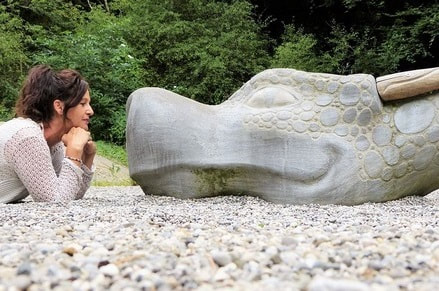 Perhaps some of us demand too much of ourselves. Because celestial marriage is eternal in nature, it’s not a far leap to think that every little thing about securing that eternity must go correctly, or we’ll suffer an eternity of less — less happiness, less fulfillment, less satisfaction, less joy. Yes, what we do matters. Our choices today determine our tomorrow. At the same time, life holds room for making mistakes along the way. Every little thing doesn’t have to be exactly just so for our journey to end gloriously. Not allowing for those mistakes can hold us back. When we fail to forgive others, we deny them the opportunity to learn from their mistakes and thereby grow into something more. When we fail to forgive ourselves, we deny ourselves the same opportunity. Isn’t that why we’re all here? Aren’t we supposed to be growing into something more than we were before? We can always learn from any experience and leverage it to our advantage. Let it go  I recall being in love some years ago with someone who married someone else. She called me on my birthday to tell me about this other guy. And then a couple of weeks later, I learned I wasn’t invited to the wedding. I was severely depressed for months. In an effort to support me, some of my friends berated her. I quickly chided them. Yes, she hurt me extensively, but I still loved her and didn’t want to have someone I loved treated that way. At the same time, I severed all connection with her. She later tried contacting me, perhaps feeling remorse over how she treated me. But she’d caused too much pain for me to trust her not to hurt me again. Forgiving others doesn’t mean you must associate with them. It simply means you release your negative emotions — the anger, the bitterness, the resentment. Forgiveness like love should be unconditional. Trust, on the other hand, must be earned. We’ve all been hurt along our dating journey. Only when we drop the extra baggage can we free ourselves to move forward in the way we should. When we apply complete forgiveness to our hearts, we become truly healed. And that will bring us more joy in our journey.
 Lately we’ve been discussing the challenges of LDS dating. We can more easily overcome these challenges when we understand the different stages of the journey (for example, that there are two kinds of dating), when we choose to be where we are, when we apply dating standards and not marriage standards to dates, and when we respectfully tell the truth despite what others think of us. Yet even after embracing all of these concepts, dating can still feel like an emotional roller coaster. That’s just how it is. You can’t have great reward without encountering great risk. And sometimes that will leave your heart in pieces. That’s why we all need a personal circle, a group of people who sincerely care about us and will support us when we need it. I’ve written before about the need for singles groups to forsake the activity club, reject the dating forum, and become a support network. I’ve also discussed how stakes and wards can play a larger role in supporting LDS singles. I still believe in all that. I also believe you shouldn’t wait for others to fill needs you have today. Own your life. Find your own personal circle. And when you hold the family and friends you need a little closer, you’ll find angels have joined in for a group hug. Know who’s in 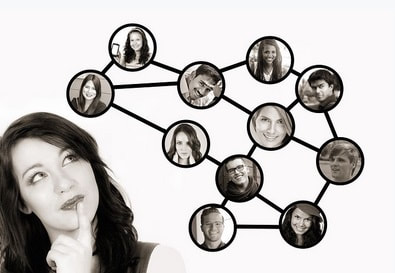 As disciples of Christ, we should always seek to help those around us. But that doesn’t mean we need to develop a deep friendship with everyone around us. Partnering with the Lord can help you know who should be what in your life. Because we gain our sense of normal from those around us, we need to be very cautious about who we admit into our personal circle. That’s where partnering with the Lord can help. He knows the influence we need to live our best life. He also knows who can best exert that influence upon us. Just as important as including the right people in your personal circle is excluding the wrong people. And sometimes you’ll be related to them. Excluding people from your personal circle doesn’t mean turning your back on them forever. It just means being very cautious about what time you do spend with them. Deposit love 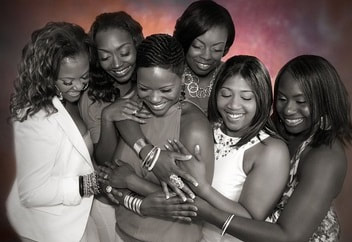 Once we know who’s in our personal circle, we should make regular deposits into their emotional bank accounts. We should never take these people for granted. And yet, too often we do. I recall being at home for the holidays towards the conclusion of my graduate school program. My relationship with my major professor had deteriorated substantially. I knew I’d be charged for another semester unless I could complete my thesis and successfully defend it before the new semester started. As we knelt in prayer before my return to campus, my mother pled with the Lord to help me finish my program. I didn’t think much about that at the time. But not long after returning, my deteriorated relationship with my major professor worsened to a breaking point. As I walked towards my major professor’s office to quit, the memory of my mother praying for me filled my mind. I suddenly felt a strengthened resolve to keep going. I finished my degree program soon thereafter. In the years since, that advanced degree has greatly blessed my life financially, occupationally, and socially. I have friends I wouldn’t otherwise have. And it’s all due to my mother’s prayer. Clearly my mother is inside my personal circle, and I make regular deposits into her emotional bank account. Find the means 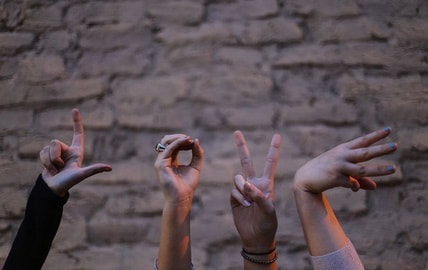 Of course, we can’t deposit love in others’ emotional bank accounts without the means to do so. Determine what means you need so you can maintain those important relationships inside your personal circle. Sometimes that means sacrifice. I could just text or call my mother, but I always make time to visit her in person. Sometimes being with her in person is itself the emotional deposit. Some have argued I should move on with my life. I don’t entirely disagree with that. But I don’t want to forfeit the opportunity to make more memories with my mother while she’s still cogent. Forsaking those opportunities will bring me regret for the rest of my life. I’d rather not live with that. Make the changes you need to make to have the personal circle you need to have. Then make regular deposits into the emotional bank accounts of each one in your circle. When you hold the people you love a little closer, you will find angels have joined in for a group hug. And that will bring you more joy in your journey.
 Lately we’ve been discussing some of the challenges of LDS dating. Why is LDS dating so hard for so many? Too often we put the cart before the horse by applying marriage standards to dating. We would enjoy our dating experiences more — and have more of them — if we evaluated potential dating partners against a standard for a date and not an eternal companion. We also have the tendency to test our dates during the date. This practice prevents everyone from truly enjoying dating. And we just might walk away from a perfectly acceptable companion because we incorrectly judge anxiety over giving the right response as a lack of confidence or some other quality we believe that person needs to have. We’ve seen answers to these challenges. We should apply dating standards to dates, not marriage standards. And we should evaluate our dates after rather than during the event. These answers require an incredible amount of honesty. And that presents a challenge in itself. How can we be as honest as we need to be when dating? Pain is part of the plan  The biggest obstacle to honesty during dating is pride. We don’t want to hurt anyone else or have others perceive us as being hurtful. Good intentions aside, sometimes people will get hurt. That’s part of this fallen world. That doesn’t excuse intentional harm, but it can help to know pain is part of the plan. Pain is also part of our journey to the love of an eternal companion. You can’t enjoy the rewards of a romantic relationship without making yourself vulnerable. You have to risk getting hurt. When you make yourself vulnerable, sometimes you’ll get the goods, and sometimes you won’t. Getting the goods feels super great. Not getting them feels super not so great. Despite your best efforts, others will still get hurt. So lowering your expectations of what results from your words and actions may help. Yes, we should desire not to hurt others. But we should also understand it may happen anyway. And we should forgive ourselves when it does. Pride resists the truth  None of that makes the truth any easier to speak if you don’t want others to think badly of you. How do you say what needs to be said when you know it will hurt someone else? This question assumes there’s a way to communicate truth without that truth having its natural result. There isn’t. Truth is truth. When others realize the truth you speak, that truth will have its effect, be it good or bad. Instead of fighting natural law, we would do better to align ourselves with it. Instead of looking to share truth without causing pain, we should simply accept that pain may result when we share the truth. In other words, just say it. Pride makes that sound incredibly difficult. But it’s not. Any difficulty lies in needing to be perceived in a particular way. That concern pressures us to act in some ways and resist acting in others. All that disappears when we stop caring about what others think. What others think of you is none of your business. Your business is doing your best to treat others with dignity and respect. Only when you stop caring about what others think will you find the complete freedom to be who you really are. And that’s the person you want to share when dating. Honesty is true freedom  Being honest doesn’t necessarily mean being harsh. We can communicate our standards without being overbearing or uncaring. For example, suppose a guy invites a girl on a casual date, but the girl would rather not. A popular response is some variant of “I’m busy.” My favorite is “I have to wash my hair.” This response isn’t completely honest. Yes, the girl may very well be busy, but here she’s really saying she doesn’t want to spend time with the guy without actually saying she doesn’t want to spend time with the guy. In effect, she’s telling the guy he isn’t worth the truth. Contrast that harsh response with the simple, straightforward “Thanks, but I’m not interested.” That’s true; the girl’s not interested. She doesn’t have to divulge details. This of course disappoints the guy, but that’s assuaged by the knowledge he’s at least respected enough to be told the truth. Complete honesty in dating will come more easily when you let go of your pride and stop caring about what others think of you. Only then will you be truly free to be the person the Lord wants you to be. Living in that space will more effectively attract to you the companion who really should be with you. And that will bring you more joy in your journey.
|
Author
Howdy! I'm Lance, host of Joy in the Journey Radio. I've been blogging about LDS singles life since 2012, and since 2018 I've been producing a weekly Internet radio show and podcast to help LDS singles have more joy in their journey and bring all Latter-day Saints together. Let's engage a conversation that will increase the faith of LDS singles and bring singles and marrieds together in a true unity of the faith.
Comment
Joy in the Journey Radio encourages the free discussion of ideas but reserves the right to remove and/or block comments which do not conform to LDS standards.
Donate
Joy in the Journey Radio offers many free resources to help LDS singles everywhere, but it certainly isn't free! Help Joy in the Journey Radio in its mission to improve the lives of LDS singles by donating today.
Posts by Month
December 2022
Categories
All
|
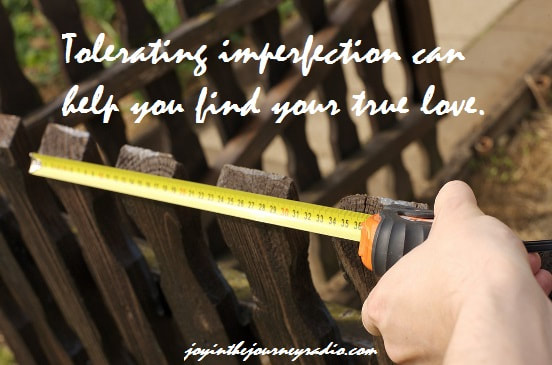
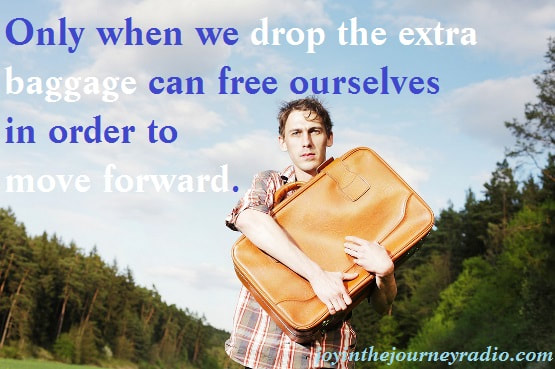
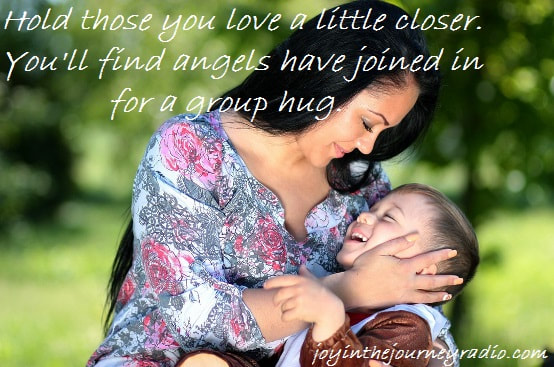

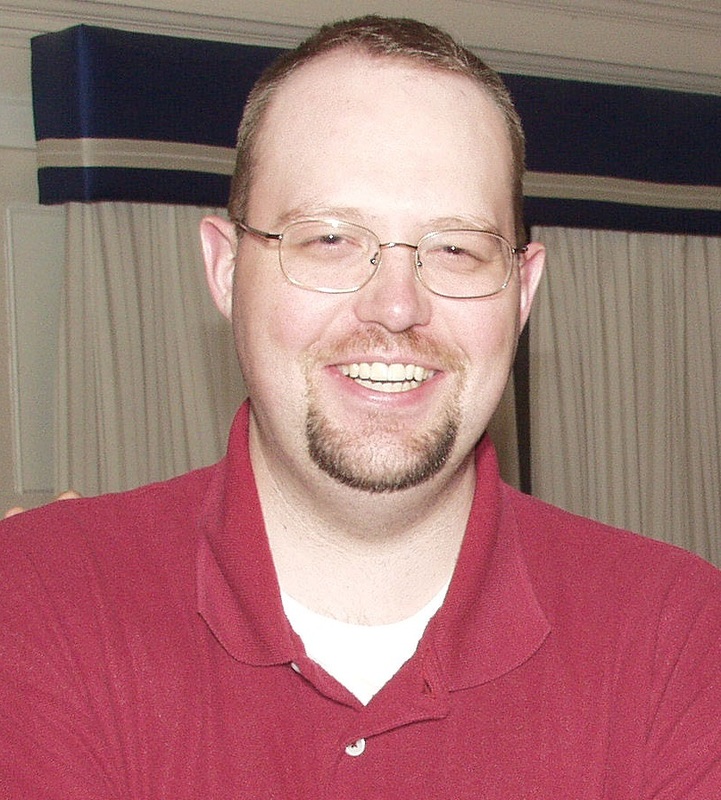
 RSS Feed
RSS Feed